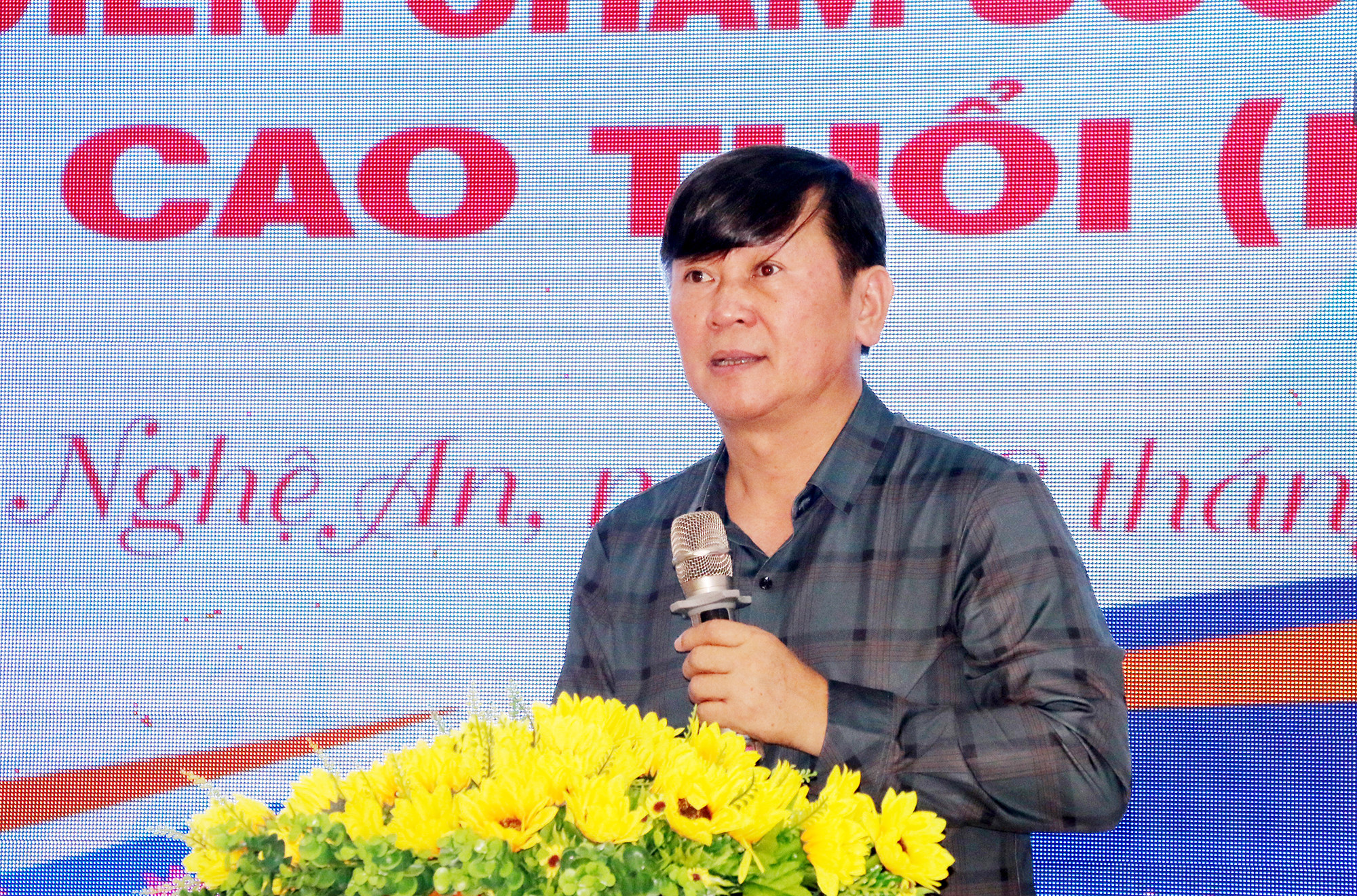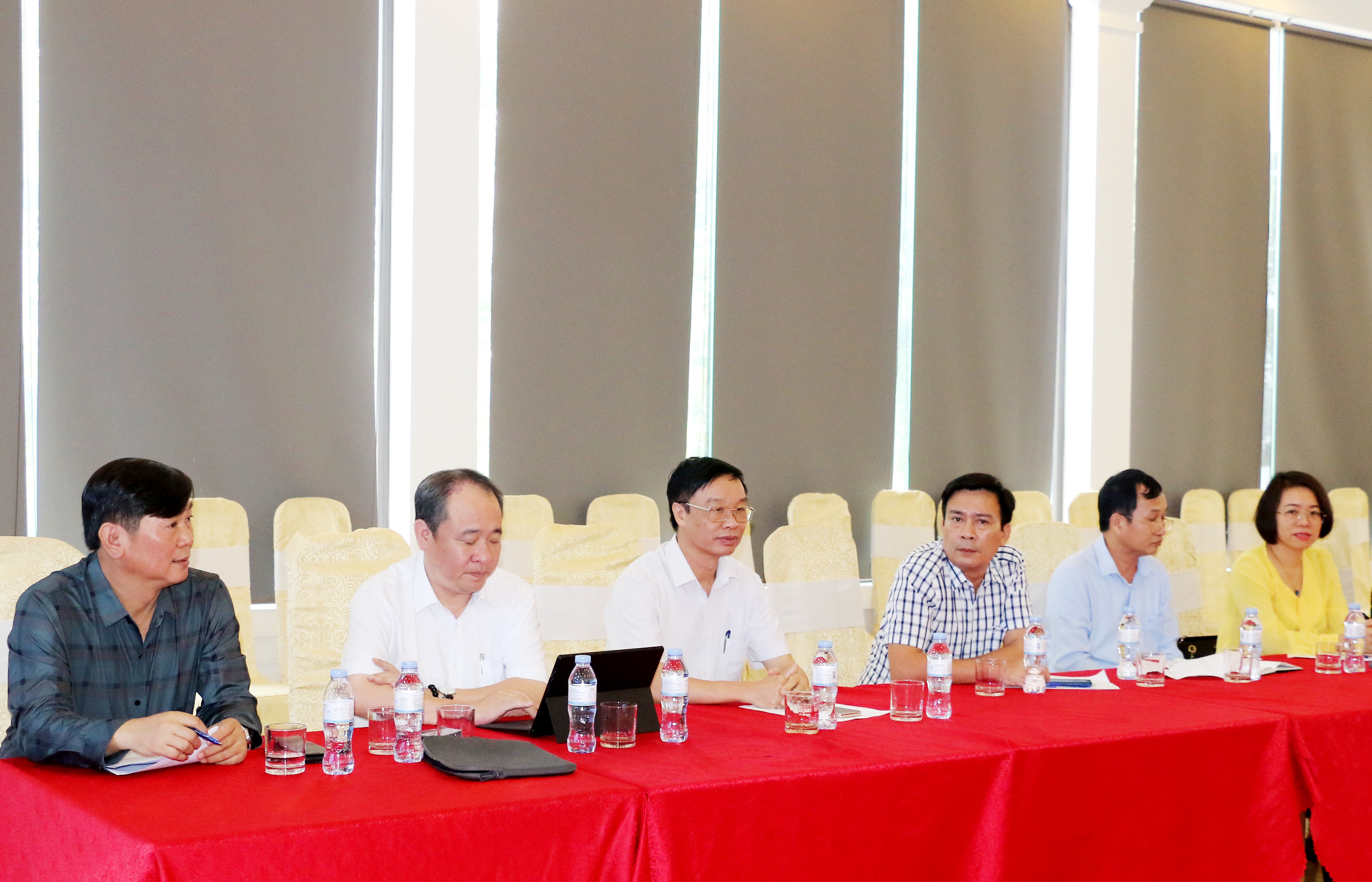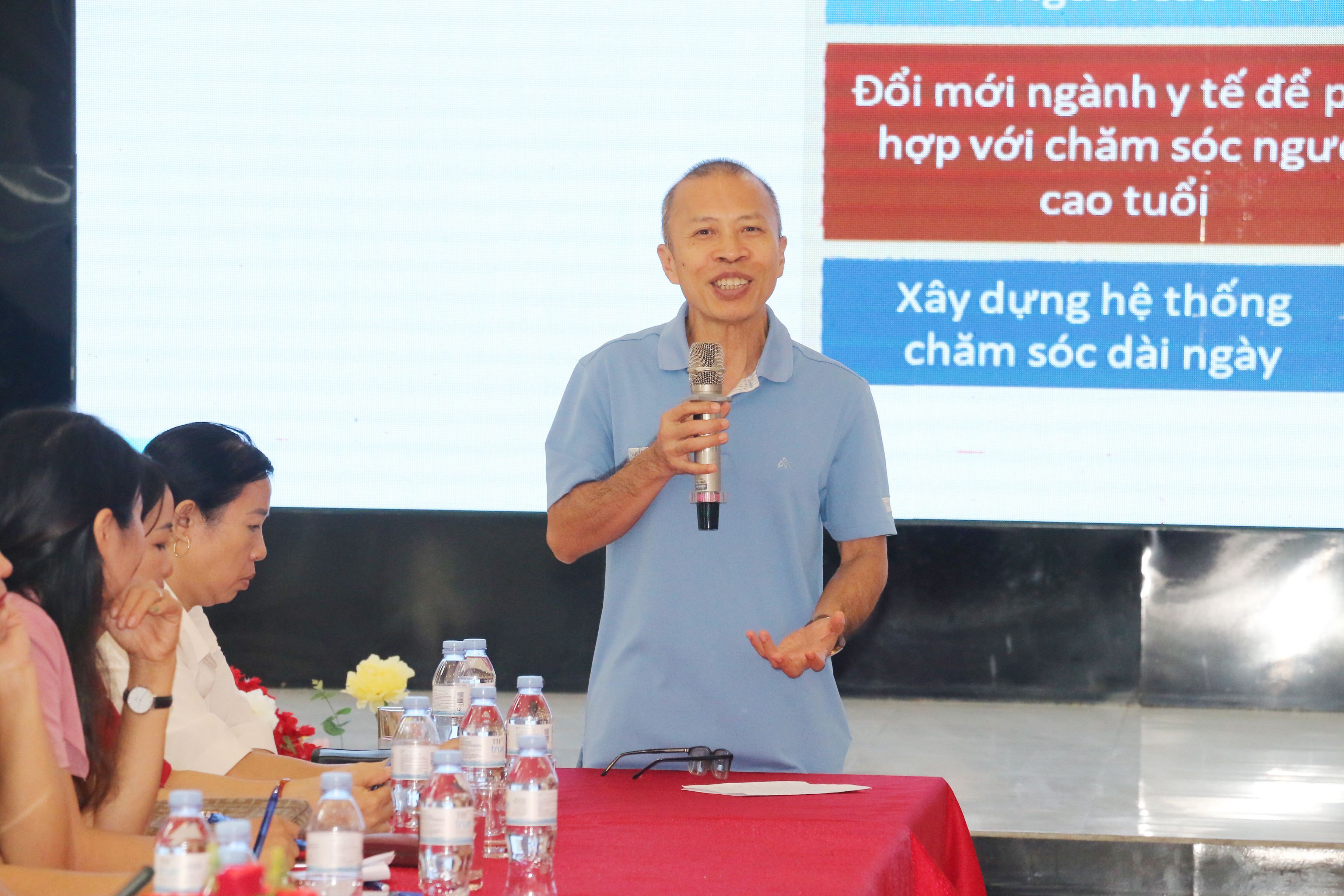Nghe An pilots integrated care for the elderly
(Baonghean.vn) - On the morning of September 18, in Yen Thanh district, the General Department of Population and Family Planning coordinated with the Provincial Department of Population and Family Planning to organize a training course to guide the pilot of integrated care for the elderly.
Previously, since 2020, the World Health Organization has completed the compilation of the handbook “Integrated Care Guidelines – ICOPE”. This ICOPE handbook aims to support health workers and social care workers in the community in detecting and managing decline in intrinsic capacity, based on the WHO document: Guidelines on community-based interventions to manage decline in intrinsic capacity and to address the health and social care needs ofelderly peoplecomprehensively.
The primary audience for this ICOPE handbook is health and social care workers in the community and in primary care. It is also relevant for health professionals with specialist knowledge, who may be called upon as needed, to assess and plan care for people with loss of intrinsic capacity and functional ability.

With the support and coordination of the World Health Organization (WHO), the General Department of Population and Family Planning will implement this program in 4 provinces including Hai Phong, Hung Yen, Hanoi and Nghe An. The training program "Introduction to integrated care for the elderly - ICOPE" is one of the contents of the program.
This is a forum for sharing experiences of domestic and international experts, policy makers, government officials and healthcare workers nationwide to understand the role of ICOPE in order to find optimal and suitable solutions to meet the healthcare needs of the elderly in Vietnam.
In particular, through comments from the grassroots, the implementers will have a better understanding of the contents of the ICOPE handbook to comprehensively address the health and social care needs of the elderly.

In his opening speech at the workshop, Mr. Nguyen Xuan Truong - Director of the Department of Population Structure and Quality - General Department of Population - Family Planning also mentioned the issue of population aging and the 21st century is called the century of population aging. In this general trend, Vietnam is no exception when since 2011, the proportion of the population 60+ has accounted for 9.9%, Vietnam has officially entered the population aging stage.
According to forecasts, Vietnam will become a country with a very old population by 2038 with the proportion of elderly people aged 60 and over reaching 20.1%. By 2049, the proportion of elderly people will account for about 25% of the population, meaning that for every 4 people there will be 1 elderly person.

Along with rapid aging, population aging in Vietnam also has its own characteristics. That is the feminization trend in the elderly with an increase in the rate of widows and the elderly living alone; the material life of the elderly in Vietnam is still difficult when 68% of the elderly live in rural areas, are farmers and work in agriculture.
In addition, 72.3% of the elderly live with their children and grandchildren, while the trend of Vietnamese family size is gradually shifting from traditional families to nuclear families. Having to live alone is very disadvantageous for the elderly, because the family is always the basic support for each member when they are old. The health of the elderly in Vietnam is still limited with a double burden of disease, on average, 1 elderly Vietnamese person has 3 diseases. Meanwhile, the health care system has not met the increasing needs of the elderly.
The leaders of the General Department of Population and Family Planning said that, with the above difficulties, to improve the effectiveness of health care for the elderly requires more concentrated efforts of the entire political system in a unified direction and goal with synchronous solutions, in order to continue institutionalizing the Party's guidelines and policies, the Constitution's regulations and laws on the elderly, ensuring that all elderly people enjoy increasingly high-quality health care services. These are also activities in line with the World Health Organization's global viewpoints and action strategies on aging and health.
Immediately after the training session, the General Department of Population and Family Planning also organized a workshop to collect opinions on the current situation and training and development needs for people working in elderly health care in the community./.
